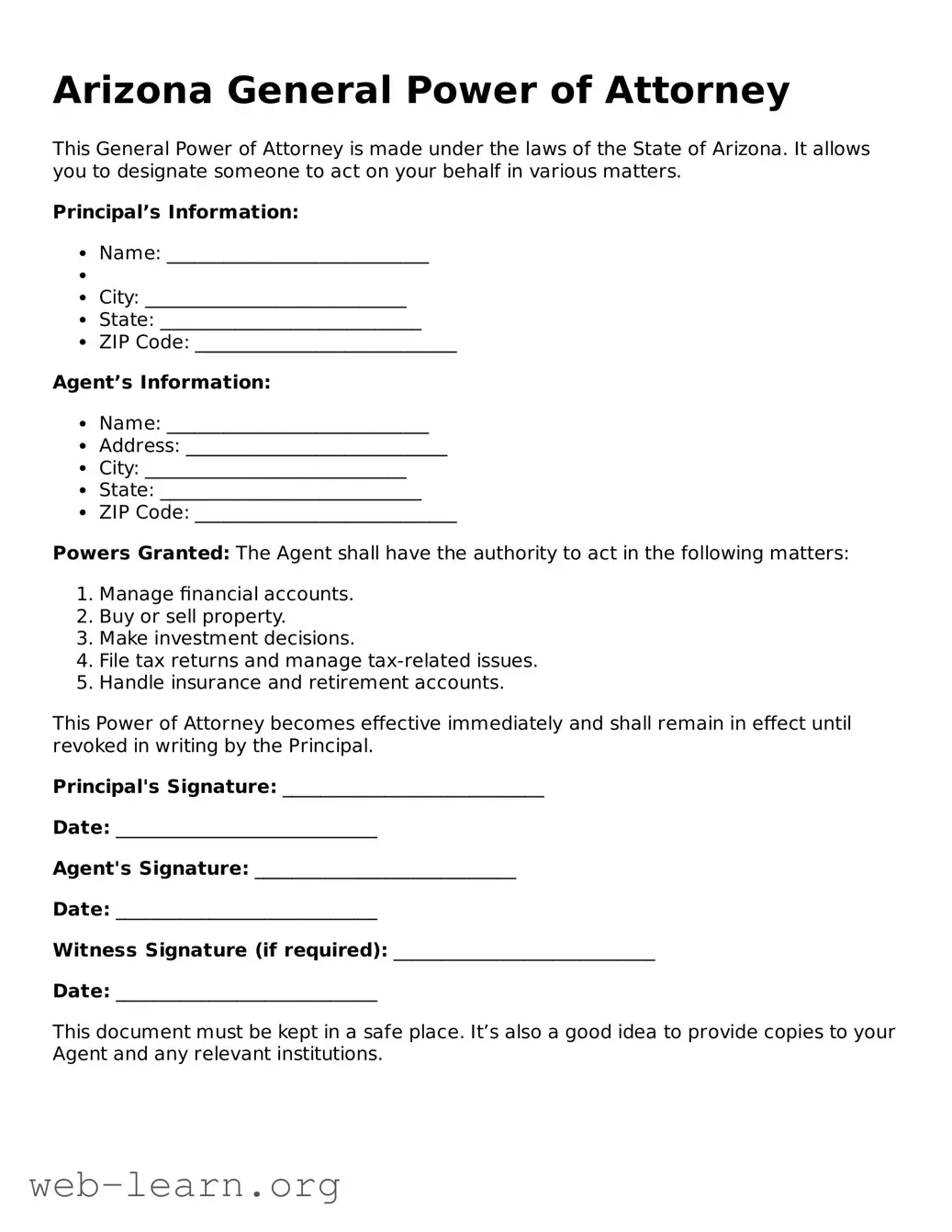Arizona General Power of Attorney
This General Power of Attorney is made under the laws of the State of Arizona. It allows you to designate someone to act on your behalf in various matters.
Principal’s Information:
- Name: ____________________________
-
- City: ____________________________
- State: ____________________________
- ZIP Code: ____________________________
Agent’s Information:
- Name: ____________________________
- Address: ____________________________
- City: ____________________________
- State: ____________________________
- ZIP Code: ____________________________
Powers Granted: The Agent shall have the authority to act in the following matters:
- Manage financial accounts.
- Buy or sell property.
- Make investment decisions.
- File tax returns and manage tax-related issues.
- Handle insurance and retirement accounts.
This Power of Attorney becomes effective immediately and shall remain in effect until revoked in writing by the Principal.
Principal's Signature: ____________________________
Date: ____________________________
Agent's Signature: ____________________________
Date: ____________________________
Witness Signature (if required): ____________________________
Date: ____________________________
This document must be kept in a safe place. It’s also a good idea to provide copies to your Agent and any relevant institutions.
